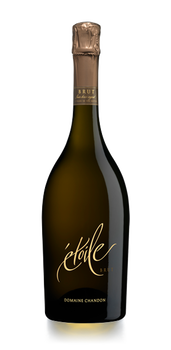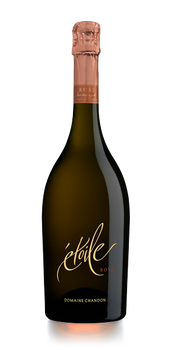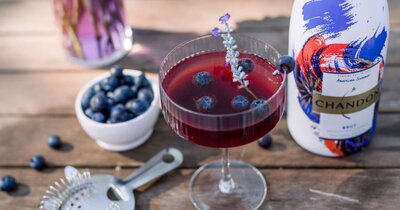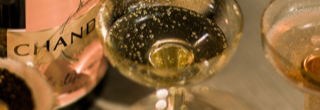
WHAT MAKES AN AWARD-WINNING SPARKLING WINE?

What’s the difference between wine critics and competitions?
A wine critic is a singular person (usually a sommelier or seasoned expert) who evaluates the quality of a wine. Competitions, however, are judged by an entire panel of “critics.” An evaluation made in a competition is more reputable than a single critic’s verdict because it’s an aggregation of more opinions rather than one person’s.
How are competitions judged?
At all prestigious wine competitions, the judges are highly qualified sommeliers and wine experts who are there for camaraderie and their genuine passion for wine. “I love being a part of the community...with my international colleagues from around the world,” says winner of the Ruinart Sommelier Challenge, Bhatia Dheeraj.
The judging process varies greatly per competition, but panels of judges typically consist of three to eight critics. Each individual judge gives a personal score that is averaged with the scores of their peers. This approach keeps the judgments fair, and representative of the entire group’s evaluation.
What are Point Scores and what do they mean?
- 50-59: flawed and undrinkable
- 60-69: flawed and not recommended, but drinakable
- 70-79: above average to good
- 80-84: good to very good
- 90-94: superior to exceptional
- 95-100: benchmark examples or classic
- (Source: Wine Folly)
A wine score is the quickest, simplest way for wine critics to communicate their opinions about the quality of a wine. Point scores, along with tasting notes, help consumers and collectors decide which wines to buy. A 100-point scale is most common, functioning similarly to a school grading scale that it starts at 50 (rather than 0). The top-scored wines are the ones that most typify their “varietal” (type of wine, like Brut, Sparkling Rosé, or Blanc de Blancs).
A Typical Point Scale:
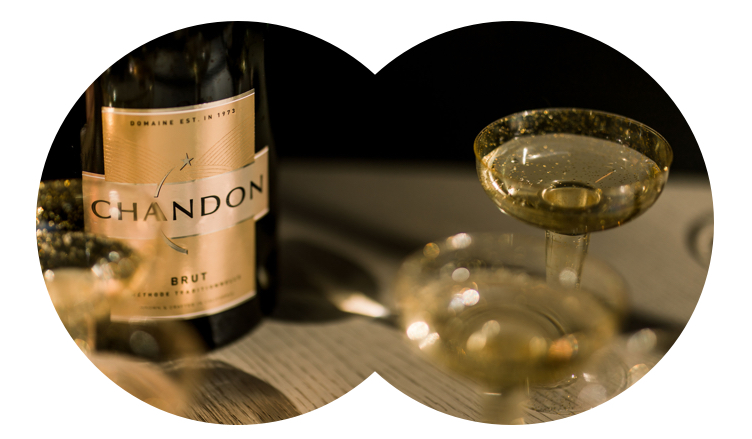
What are medals and how do wines win them?
Medals are awarded exclusively in competitions. They’re less like the Olympic gold, silver, bronze system, and more an expression of a wine’s point score. Whether a wine qualifies for a medal, and whether that medal is gold, silver or bronze, depends on how many points it scores.
In general, a bronze medal means the wine has potential, silver means it’s something special and worth seeking out, and gold means the wine gained top scores for quality and character – a must try within its category.
What are awards?
In a competition setting, the best wines receive silver and gold medals, and usually only the gold winners qualify to compete for prestigious Best in Class Awards and other accolades. Therefore, winning awards is one of the most prestigious forms of recognition a wine can gain.
Where do great sparkling wines get evaluated?
There are many competitions out there, and not all are created equal. For example, local competitions may be reputable, but entries are judged from a smaller pool of wines. For more comprehensive verdicts, you can look to leading national competitions like the San Francisco Chronicle Wine Competition or top global competitions include the Sommelier Challenge International Wine & Spirits Competition, Decanter World Wine Awards, and the Champagne and Sparkling Wine World Championships (the most respected and rigorous competition dedicated solely to sparkling).
How important are scores and accolades?
These measures do a generally good job of communicating wine quality in the eyes of experts. However, similar to a dog show, the wines that get the most recognition are typically the ones that best represent their varietal. That’s to say, that if you look at a straightforward definition of Brut, the winner will be the one that best and most skillfully ladders up to the definition. There’s no award for the most unique Brut. All of that said, at Chandon, we’re strong believers in the philosophy of “drink what you like.” At the end of the day, you’ll be the one to enjoy the wine, so your opinion matters most.
If you found this interesting, you’ll love Club Chandon. Consider joining to delve deeper into the craft, community, and (of course) tasting of California’s finest sparkling.
Learn More
AWARD WINNERS:
Available in cases
Available in cases
THANK YOU!
Get ready for the latest Chandon news, upcoming events, product releases, special offers and more.
Your promo code for 15% off your first order is


